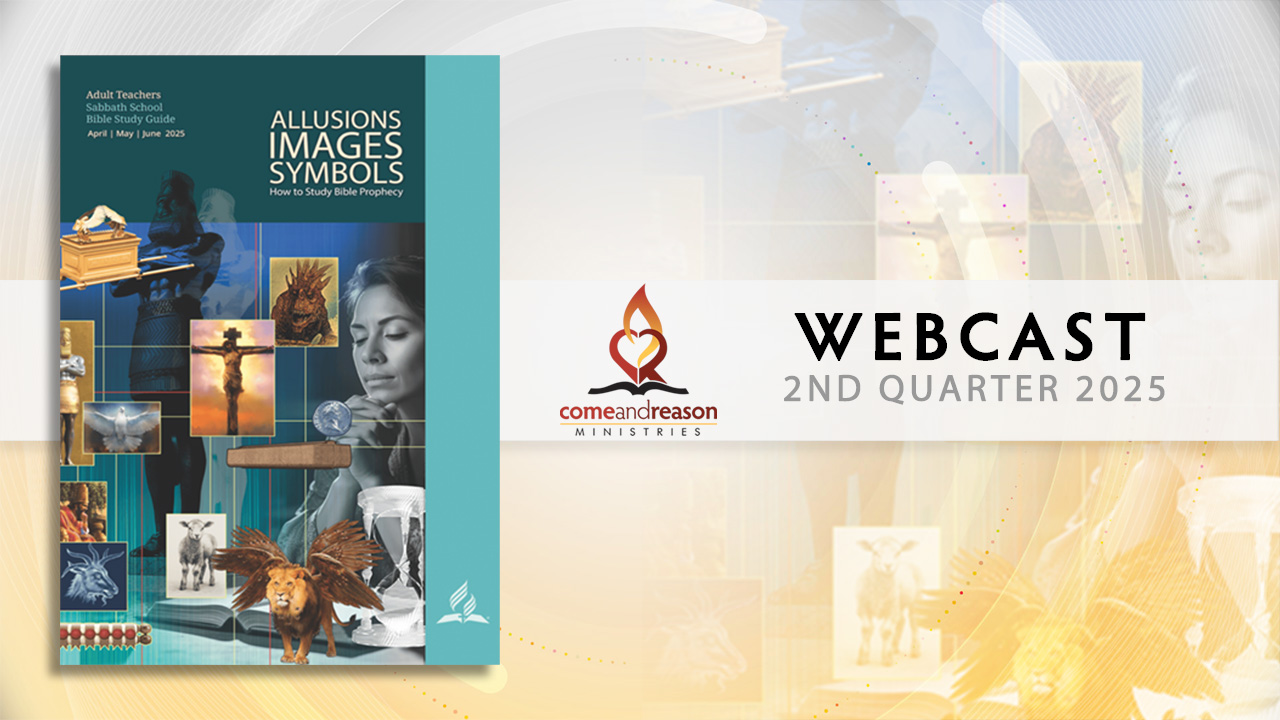Therefore, I urge you, brothers, in view of GodŌĆÖs mercy, to offer your bodies as living sacrifices, holy and pleasing to GodŌĆöthis is your spiritual act of worship. Do not conform any longer to the pattern of this world, but be transformed by the renewing of your mind. Then you will be able to test and approve what GodŌĆÖs will isŌĆöhis good, pleasing and perfect willŌĆØ (Romans 12:1, 2 NIV84 emphasis mine).
What does it mean to have a renewed mind? Can you think of any ways in which a renewed mind thinks differently than an unrenewed mind?
Would a renewed mind see the wisdom of the world as foolishness and an unrenewed mind see GodŌĆÖs wisdom as foolish? (1 Corinthians 1:20ŌĆō25).
Is it wise or foolish to pursue friendship, love, and trust by threatening to punish those who refuse to love and trust you? Is it wise or foolish to pursue justice with threats of punishment? Can people be won to love and trust by legislation, rulemaking, or imposed laws like the world makes?
Is it wise or foolish to turn the other cheek when someone strikes you? (Matthew 5:39). Which justice is the justice of godly wisdom: the justice that turns the other cheek seeking to win an enemy, turning them into a friend, or the justice of imposed law that seeks to make the wrongdoer pay the proper penalty for their offense and turns them into either fearful servants or rebels?
There is a way that seems right to a man, but in the end it leads to death (Proverbs 14:12 NIV84).
DoesnŌĆÖt the ŌĆ£rule of lawŌĆØ method, the methods of justice by legal means and rule-enforcement, of holding wrongdoers accountable with proper inflicted punishments, seem right? But in the end, all such methods lead to death, for lawmaking, imposed penalties, threats, and inflicted punishments do not remove fear, do not restore trust, do not eliminate rebellion and sin, and do not win people to loving friendship. The unrenewed mind thinks such law-keeping and enforcement is wise, but it is truly foolish. Jesus said,
Not everyone who says to me, ŌĆ£Lord, Lord,ŌĆØ will enter the kingdom of heaven, but only he who does the will of my Father who is in heaven. Many will say to me on that day, ŌĆ£Lord, Lord, did we not prophesy in your name, and in your name drive out demons and perform many miracles?ŌĆØ Then I will tell them plainly, ŌĆ£I never knew you. Away from me, you evildoers!ŌĆØ (Matthew 7:21ŌĆō23 NIV84).
Does it sound like these people who Jesus calls ŌĆ£evildoerŌĆØ are in open rebellion against God, or are they in active ministry? Would these people be irreligious or religious? And in whose name are they working so hard? In the name of Jesus!
Despite knowing to call Jesus their Lord, they have not had their minds renewed, their hearts have not been healed to be like Jesus. They have not come into unity or friendship with Him. Why? Because they donŌĆÖt know or understand Him and His Father.
In John 15:15, Jesus says, ŌĆ£I no longer call you servants, because a servant does not know his masterŌĆÖs business. Instead, I have called you friends, for everything that I learned from my Father I have made known to youŌĆØ (NIV84).
These religious people relate to Jesus like a servant relates to their powerful master, with fear-based obedience to rule-keeping and task fulfillment. In other words, they believe GodŌĆÖs law functions like human law, imposed rules, and view sin as a legal problem, with God serving as the rule-enforcer; they obey God merely to avoid legal trouble with the one in charge. But they have never become friends of GodŌĆöthey donŌĆÖt truly know Him. They donŌĆÖt know why sin is wrong (because it severs GodŌĆÖs design law for life and, without remedy, results in ruin and death); they only know that God doesnŌĆÖt like it. Thus, their minds are not renewed and the things of God are foolish to them. They continue to live in fear and are motivated by selfishness, to avoid trouble, rather than to love God and others.
┬Ā
Approving the Will of God
The apostle Paul said that when our minds are renewed, we ŌĆ£will be able to test and approve what GodŌĆÖs will is.ŌĆØ
But who are we to test and approve GodŌĆÖs will? ArenŌĆÖt we to simply accept the will of God, not test or approve it? ArenŌĆÖt we supposed to humbly surrender and submit to GodŌĆÖs will? If God said it, arenŌĆÖt we to simply believe itŌĆöand thatŌĆÖs all there is to it? ŌĆ£Ours is not to question why; ours is just to do or die!ŌĆØ Right?
WouldnŌĆÖt all of this be the mindset of a servant and not a friend? WouldnŌĆÖt this be the attitude of those who do not know God?
If we are to be testing and approving GodŌĆÖs will, wouldnŌĆÖt that mean that we are to be understanding friends of GodŌĆöthat we are to reason things out with Him (Isaiah 1:20), and, thereby, develop by practice the ability to discern the right from the wrong (Hebrews 5:14) so that we are fully persuaded in our own mind (Romans 14:5) that God is good, God is right, and GodŌĆÖs ways are the only ways of health and happiness?
What is it that God truly wants for us and from us? Does God want more than the obedience of a well-trained dog? Does God want more than the obedience of a servant? Does God want our understanding agreement, friendship, loyalty, love, and devotion? Can God get what He wants for us and from us by imposing rules and threatening to punish us for rule-breaking?
Is it threats of punishment that lead us to become the kind of people God wants, or is it the kindness of God that leads us to repentance, leads us to give up on trying to save self and surrender ourselves in trust to God for the renewing of our minds? (Romans 2:4).
So, does the renewed mind seek to understand God, while the unrenewed mind seeks to merely obey?
Does the renewed mind seek an enlightened and intelligent faith, while the unrenewed mind hides in ŌĆ£blind faithŌĆØ?
Does the renewed mind seek to understand GodŌĆÖs methods and principles and intelligently live in harmony with them, while the unrenewed mind seeks to determine the right rules and the authorized way to keep the rules?
Does the renewed mind seek, like Moses, to see GodŌĆÖs face, while the unrenewed mind seeks to hide behind a mediator (Exodus 31:18ŌĆō20)?
Does the renewed mind humbly ask questions, even questioning what God has said He is going to do, while the unrenewed mind seeks to obey and never question what God has said?
Does the renewed mind live like Abraham, who questioned God about Sodom (Genesis 18:26ŌĆō33), or like Moses, who questioned God about destroying the Israelites? (Exodus 32:31). Would it have been better had they taken the position: ŌĆ£Who am I to question God? If the Sovereign Lord has said it, I believe itŌĆöand that is all there is to it.ŌĆØ Do you think God would have been more pleased with Abraham and Moses if they merely submitted to His revealed will just like any unthinking servant would do?
God wants all of us to become His loving, faithful friends, just like Abraham and Moses were, to test His word, to examine His will and methods, and to be fully persuaded in our own mind so that we are won to unshakable, loving friendship with HimŌĆöso that we would rather die than let Him down.┬Ā
I urge you, fellow friends of God, ŌĆ£Do not conform any longer to the pattern of this world, but be transformed by the renewing of your mind. Then you will be able to test and approve what GodŌĆÖs will isŌĆöhis good, pleasing and perfect will.ŌĆØ
┬Ā
┬Ā










 using your credit or debit card (no PayPal account needed, unless you want to set up a monthly, recurring payment).
using your credit or debit card (no PayPal account needed, unless you want to set up a monthly, recurring payment). instead?
instead?